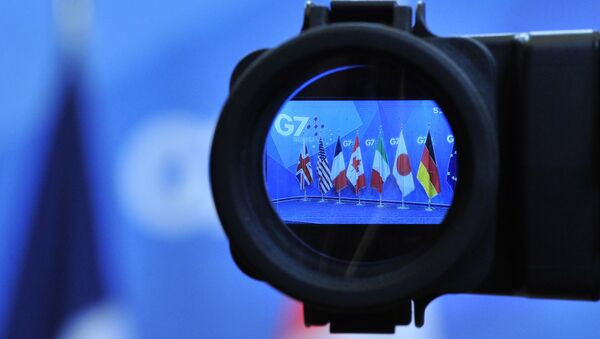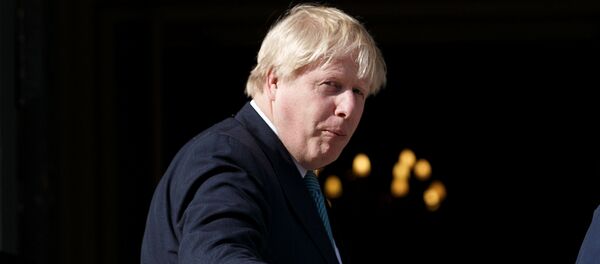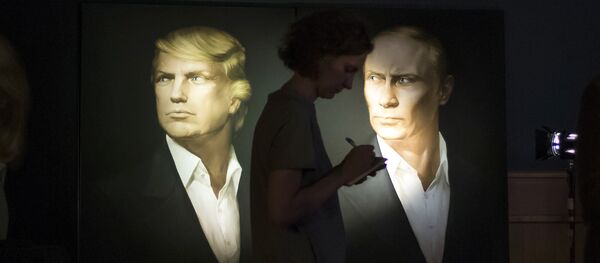Kristian Rouz – A Group of Seven (G7) meeting revealed the deepening divide between the attitudes of the increasingly protectionist US and the rest of the world’s largest economies, which are attempting to uphold the free trade approach to the global exchange in goods and services.
G7 finance ministers and representatives of central banks met in Bari, Italy, on Friday and Saturday. Whilst the message of the meeting was predominantly a repetition of the G20 meeting held in March, reiterating the nations’ commitment to free trade, the US Treasury Secretary Steven Mnuchin hinted the US no longer intends to contribute to strengthening international trade ties between nations, putting their own economic interest first.
“We will strive to reduce excessive global imbalances and in a way that supports global growth. We are working to strengthen the contribution of trade to our economies,” the G7 communique read.
However, Mnuchin abstained from stating the US commitment to the letter and spirit of the communique, despite all the efforts of his French and German colleagues. Under the administration of Donald Trump, the US are feeling disadvantaged in global trade, not least due to other major currencies being undervalued compared to the dollar and unfavourable trade deals that the US had signed up to in the past 25 years.
“Many of us, including myself and Dr. Schaeuble (German Finance Minister), told Mr. Mnuchin that it is unthinkable that in the weeks and months to come, we can allow the established framework to be debated,” Michel Sapin, Finance Minister of France, said. “It is unthinkable and it will not happen that we destroy the framework that has given us stability and economic growth.”
Mnuchin had said that international trade should be “fair” and “reciprocal” during the G20 meeting in March, and his refusal to change his stance on the matter during this most recent G7 meeting stirs greater uncertainty in international trade as the existing international consensus is perceived as crumbling without the active support of the world’s largest economy.
“There obviously is a very sharp difference between the sort of cosmopolitan policy makers that make up most of the G-7 and the American position on these issues,” Angus Deaton, a Nobel Prize-winning economist of Princeton University, said.
Still, the G7 mindset belongs to the era of the post-Great Recession recovery, whilst the Trumponomics is devised as an experiment aimed at finding new sources of economic growth.
“We will work to lift actual and potential growth, while ensuring that the fruits of economic growth are shared more widely,” the G7 communique read.
Mnuchin was not present at the early Friday session of the G7 meeting, joining his colleagues later and holding bilateral talks with his Italian, German and Japanese colleagues, among others. The US government seems to be favouring a bilateral, rather than multilateral, approach to global affairs, which falls in line with Trump’s idea of global trade as ‘reciprocal’.
Secretary of the Treasury has been promoting the pro-growth agenda, putting the issue of national productive forces first, and trade second. The US government sees domestic growth objectives in each as crucial for achieving significant improvements in global economy, but the rest of the G7 seems to think otherwise, seeing global trade as key source of growth. Considering the lacklustre global recovery in the free trade era of 2010-2016, the US representatives are even more convinced that domestic growth comes first.
“We need a strong United States, the United States needs the global economy and global economics on a sustainable way where the United States is still the most important political and economic partner and the best alliance for Europe,” Wolfgang Schaeuble, the German Finance Minister, said.
Whilst the final communique included some wording referring to fighting inequality and financial inclusiveness of the global economy as a desirable target, Mnuchin’s view of a better model of international trade as rather ‘fair’ instead of ‘free’ prevented a G7 consensus on the matter. Mnuchin’s practice of ‘speed-dating’ (in his own words) other nations’ finance ministers also suggests a rising degree of protectionism, pragmatism, and bilateralism in everything USA-related from this point on, which is a huge leap away from the idealistic global unanimity on every single challenge the world economy is facing.






